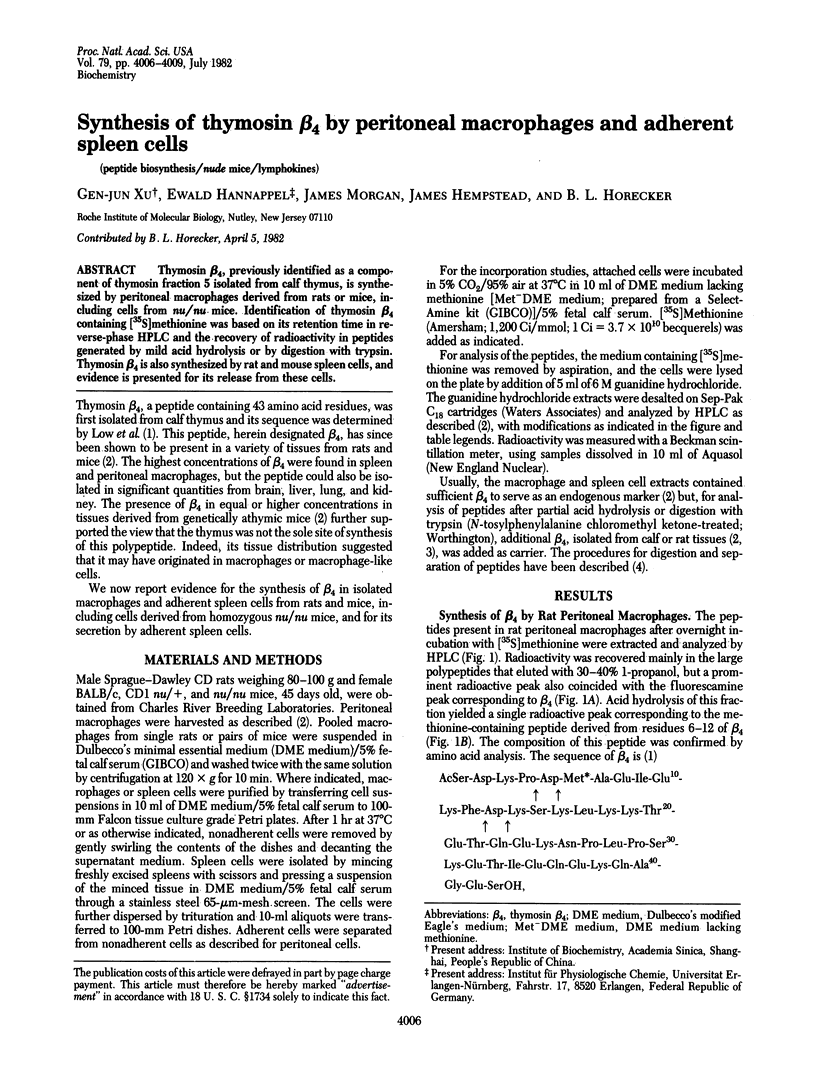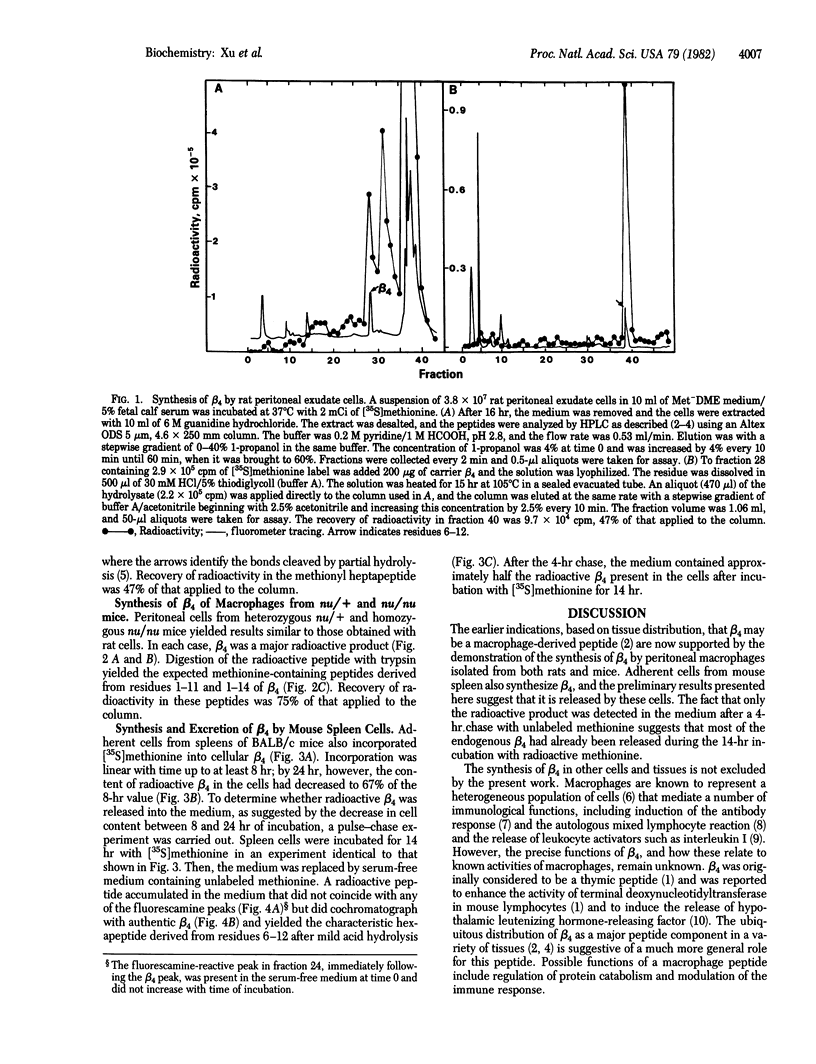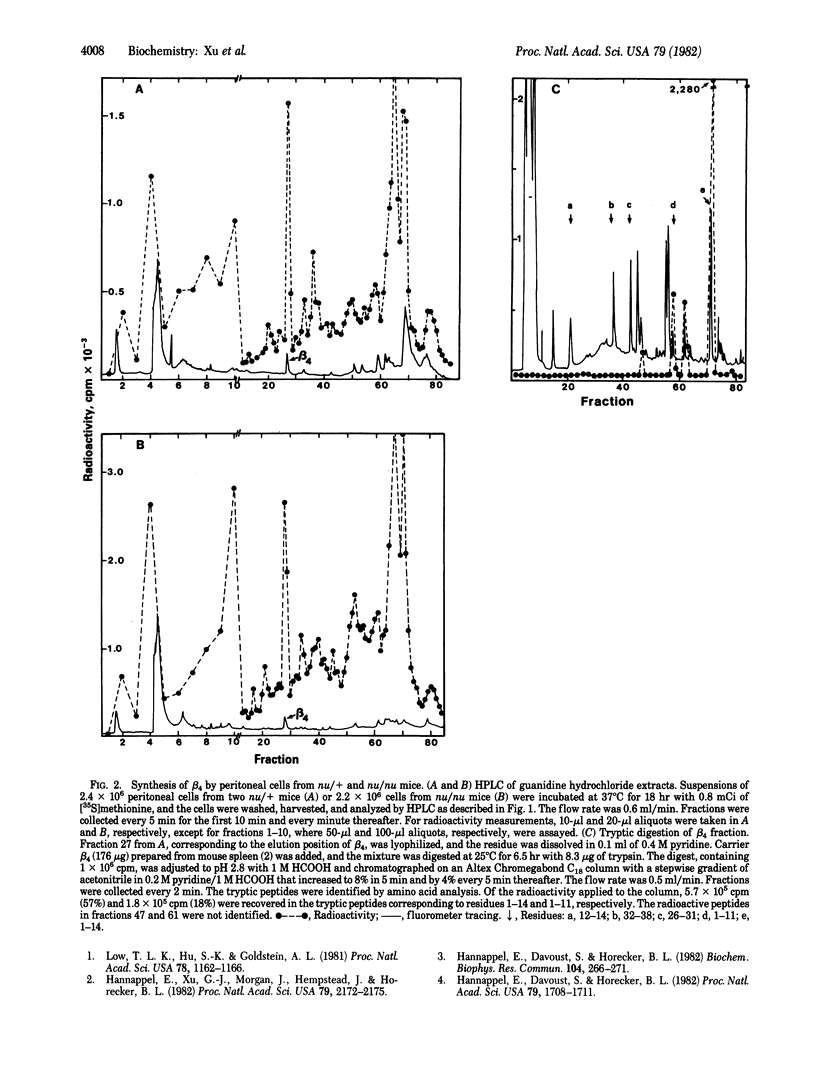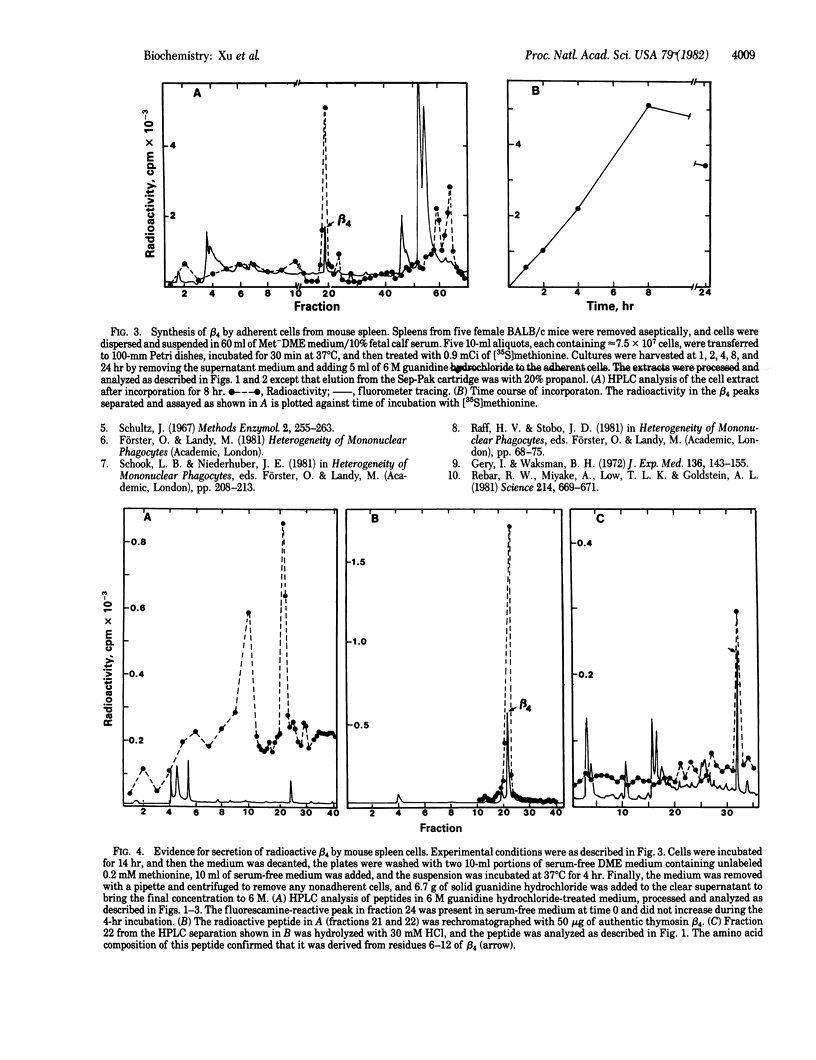Abstract
Thymosin beta 4, previously identified as a component of thymosin fraction 5 isolated from calf thymus, is synthesized by peritoneal macrophages derived from rats or mice, including cells from nu/nu mice. Identification of thymosin beta 4 containing [35S]methionine was based on its retention time in reverse-phase HPLC and the recovery of radioactivity in peptides generated by mild acid hydrolysis or by digestion with trypsin. Thymosin beta 4 is also synthesized by rat and mouse spleen cells, and evidence is presented for its release from these cells.
Full text
PDF



Selected References
These references are in PubMed. This may not be the complete list of references from this article.
- Gery I., Waksman B. H. Potentiation of the T-lymphocyte response to mitogens. II. The cellular source of potentiating mediator(s). J Exp Med. 1972 Jul 1;136(1):143–155. doi: 10.1084/jem.136.1.143. [DOI] [PMC free article] [PubMed] [Google Scholar]
- Hannappel E., Davoust S., Horecker B. L. Isolation of peptides from calf thymus. Biochem Biophys Res Commun. 1982 Jan 15;104(1):266–271. doi: 10.1016/0006-291x(82)91969-6. [DOI] [PubMed] [Google Scholar]
- Hannappel E., Xu G. J., Morgan J., Hempstead J., Horecker B. L. Thymosin beta 4: a ubiquitous peptide in rat and mouse tissues. Proc Natl Acad Sci U S A. 1982 Apr;79(7):2172–2175. doi: 10.1073/pnas.79.7.2172. [DOI] [PMC free article] [PubMed] [Google Scholar]
- Rebar R. W., Miyake A., Low T. L., Goldstein A. L. Thymosin stimulates secretion of luteinizing hormone-releasing factor. Science. 1981 Nov 6;214(4521):669–671. doi: 10.1126/science.7027442. [DOI] [PubMed] [Google Scholar]



